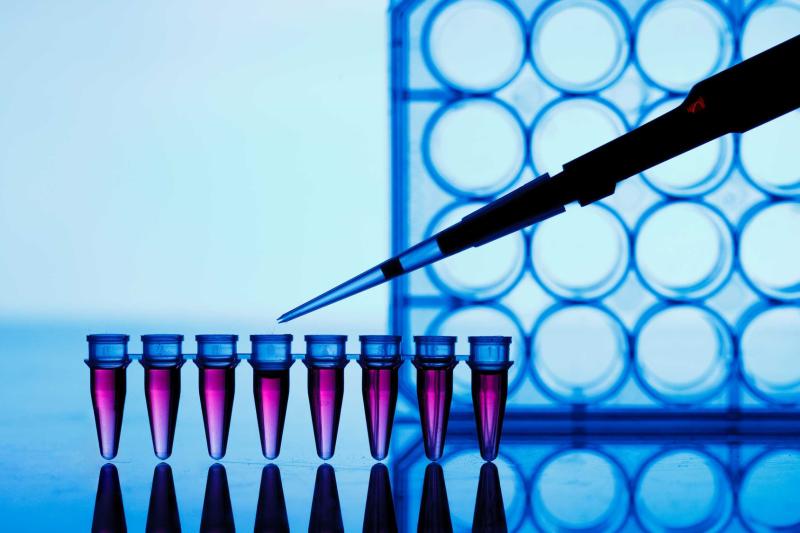More PCR targets may help mitigate drops in test sensitivity, specificity from SARS-CoV-2 mutations




 ELISA, potentially a less reliable method compared to SERS for detecting NS1
ELISA, potentially a less reliable method compared to SERS for detecting NS1Targeting more than one region of the SARS-CoV-2 viral genome in reverse transcriptase-polymerase chain reaction (RT-PCR) assays may attenuate losses in test sensitivity brought about by unknown mutations, according to a new study.
“The goal of this study is to assess how the genetic variability observed in the SARS-CoV-2 genome as of week 21, 2020, has affected sensitivity of publicly available SARS-CoV-2 real-time RT-PCR Panel assays,” researchers said.
The researchers retrieved 30,090 available SARS-CoV-2 genome sequences from the Global Initiative on Sharing All Influenza Data (GISAID) database, and 3,729 sequences from GenBank. Analysis showed large nucleotide insertions and fragment gene inversions in the polyprotein Orf1ab gene, which is a typical indicator of genetic recombination in coronaviruses. [Int J Infect Dis 2020;doi:10.1016/j.ijid.2020.06.027]
None of the above alterations were in binding regions of RT-PCR primers, so recombination analysis was not performed.
However, researchers found that 34.38 percent (n=11,627) of the included genomes had single point mutations that could potentially affect PCR primer annealing. Of these, 8,773 (25.94 percent of the total sample size) were considered as high-risk. These included a trinucleotide variation that affected the binding of one assay’s forward primer and single variations impacting the annealing at the 3’ or 5’ end.
On the other hand, mutations that affect the binding of more than one oligonucleotide in the same assay were uncommon.
Researchers then evaluated the specific diagnostic kit QIAstat-Dx SARS-CoV-2 Panel, which is a duplex assay targeting the RdRp and E genes, both considered to be highly conserved. Almost all (99.1 percent) of the genomes showed 100-percent coverage match with all oligonucleotides in this kit.
On the other hand, 301 (0.89 percent) carried single variations that were thought to affect annealing, of which 35 (0.10 percent) had mutations that were in a critical position. Most commonly, this consisted of a mismatch in the last position of the 3’-end of any of the primers.
Further in vitro testing showed that out of the 20 replicates tested, 19 returned positive results and confirmed the kit-declared limit of detection. This suggests that despite such genomic variations, the QIAstat-Dx-SARS-CoV-2 kit retains its sensitivity and specificity.
“The majority of the annotated single nucleotide variations are predicted to have no effect on sensitivity at panel level, including those placed in critical positions,” the researchers pointed out.
However, “given that genetic variability in the SARS-CoV-2 genome is expected to increase based on the natural viral mutation and recombination rates, our results show that combination of more than one assay target in real-time RT-PCR SARS-CoV-2 panels can mitigate the risk of loss of sensitivity or specificity,” they added.
“In this regard, continuous monitoring of genomic variations is essential to provide a rapid response in case assay redesign is needed.”